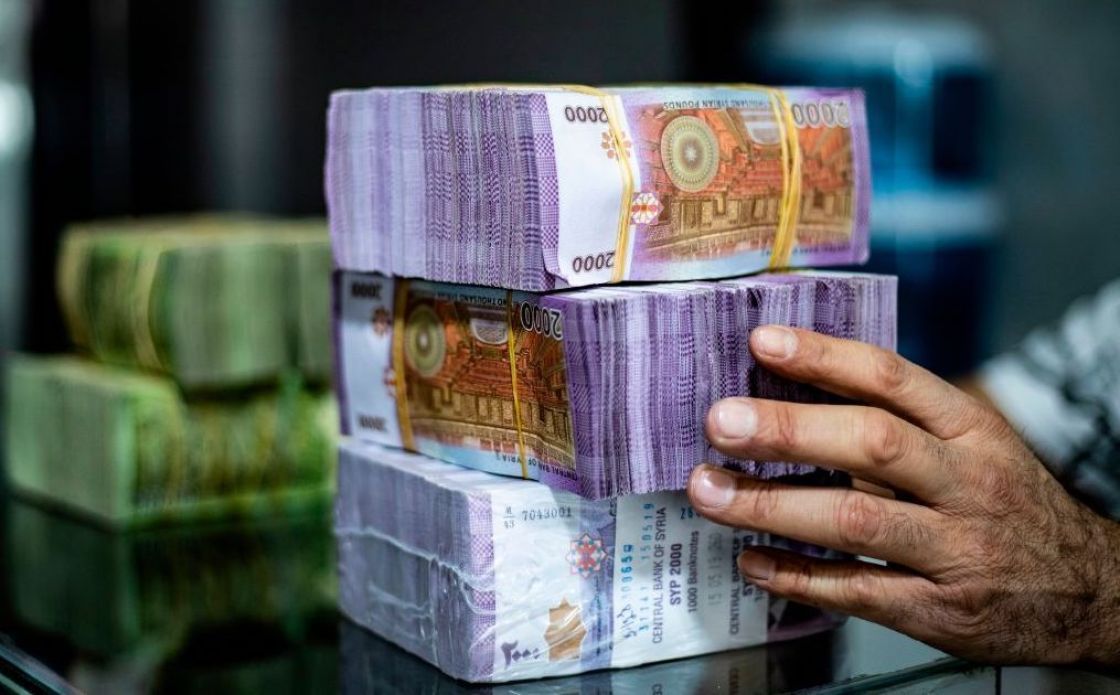- Articles
- Posted
Cold Policies Hide the Violence of (Survival of the Fittest)
The government managed to raise nearly 465 billion Syrian pounds from issuing treasury bonds and certificates of deposit during the previous eight months of this year, which is an internal public debt loaned by public and private operating banks and their clients to the state, in return for interest rates and benefits in a period of time between 6 months to two years.
This is the limit available for monetary policies and the Syrian government to undertake the resource mobilization process from the market and invest it in public expenditure! As the government borrows primarily from public banks, and that is the utmost in an emergency situation that needs succor, with the overlapping of health, food and economic crises of a country that has been through 10 years of crisis.
465 billion pounds that form a percentage of 11,6% from the government budget announced in 2020 amounting to 4000 billion Syrian pounds, have been raised from the market to fund public expenditure, and that is through issuing treasury bonds matured after two years, and what is remaining from the certificates of deposit matured after 6 months.
This process is considered financing public fund from accumulated liquidity in the market, which is partly in withdrawing this liquidity from circulation. This procedure is better than the government resorting to borrow from the Central Bank by issuing currency because it does not have inflationary effects.
Government agencies say that many banks have contributed and financed, and in most cases, public banks are the ones that loaned the government from the public funds deposited in them. As for private banks and other market forces, they will not freeze amounts in the Syrian pound in interest rates of 6,5 – 7% and for periods between two years and 6 months, because the Syrian pound could lose its value during this period by more than the interest rate!
Procedures and statements from the authorities concerned with managing the economic situation in Syria seem to be living in a different world. They carry out (cold procedures) or what can be called minimum procedures, as if we are living in normal conditions. It offers optional bonds in which public banks contribute, such as the policy of raising money and allocating it to public spending. Whereas, crises overlap requires following all political and economic ways for mobilizing resources and aiding.
The problem is not in issuing treasury bonds and certificates of deposit, rather in the absence of any serious procedure as it is required. As the public finances need every free public expenditure to increase their health capabilities and their spending and provide the requirements to confront an epidemic! Also, increasing their capabilities to expand food production in a country where half of the population do not have adequate food, and are below hunger limit, and increasing the capabilities to support declining productive sectors, which may drive hundreds of thousands of people into unemployment.
The huge difference is between what the country needs in terms of an emergency plan and government performance, or more precisely, its competencies and the plans set for it. This difference expresses a lot, it deeply reflects the saying (survival of the fittest), as those who are capable of mobilization and setting an emergency plan are not concerned with the storm that is exhausting millions of the vulnerable!
They are concerned with managing the crises of the elites, and distributing resources among them. This is what the ostentatious file of fighting corruption reflects, which issues many precautionary seizure decisions on the funds and properties of the Syrian elites that the law could not easily reach! However, the result was nothing, of course. This campaign resulted in nothing but a massive fund smuggling campaign abroad, that did not even lead to providing public expenditure capability to distribute protective masks to the medical staff in their battle against the epidemic, due to backwardness, negligence and theft of health expenditure and public fund.
(Survival of the fittest) is the saying of the emergency crisis management that the country is experiencing. It is the policy of non-management that cannot affect any of the elements of power that resides in tycoons and men of influence, and leaves the vulnerable to their fate.


